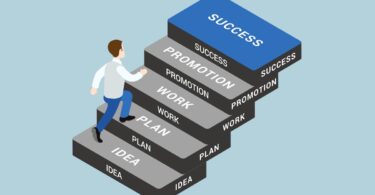Do you have a clear vision of what you want to achieve in your professional life? If not, you may miss out on great opportunities to grow and advance in your career. Career goals are the results you want to attain in your work, such as getting a promotion, earning a higher salary, or gaining more skills and experience. Setting and pursuing career goals can help you stay focused, motivated, and productive in your job.
But how do you plan and achieve your career goals? It’s not enough to just have a vague idea of what you want. You must create a specific, measurable, achievable, realistic, and timely (SMART) action plan to guide you toward your desired outcome. This article will show you how to write an effective action plan for your career goals, with examples and tips to help you along the way.
Table of Contents
What is an Action Plan?
An action plan is a document that outlines the steps you need to take to achieve a specific goal. It helps you break down your goal into smaller, manageable tasks that you can complete within a certain timeframe. An action plan also helps you track your progress and measure your results.
Why Do You Need an Action Plan for Your Career Goals?
An action plan for your career goals can help you:
- Clarify what you want in your career and why.
- Identify the skills, knowledge, and resources you need to achieve your goal.
- Create a realistic timeline and budget for your goal.
- Monitor your performance and adjust your plan as needed.
- Celebrate your achievements and reward yourself for your efforts.
How to Write an Action Plan for Your Career Goals
Here are some steps you can follow to write an effective action plan for your career goals:
1. Define What You Want in Your Career
The first step is to define what you want in your career. What is your ultimate vision for your professional life? What are the benefits of achieving your goal? How will it impact your personal life, happiness, and well-being? Be as specific as possible when defining your goal, as this will help you create a clear and compelling action plan.
For example, instead of saying, “I want to advance in my career,” you could say, “I want to become a senior project manager in my company within the next two years.”
2. Remind Yourself of the “Why”
The next step is to remind yourself of the “why” behind your goal. Why do you want to achieve this goal? What is the purpose and meaning of it? How will it align with your values and passions? Reminding yourself of the “why” can help you stay motivated and committed to your goal, especially when you face challenges or setbacks.
For example, if you aim to become a senior project manager, you could remind yourself that this will allow you to lead bigger and more impactful projects, mentor junior staff, and increase your income and recognition.
3. Be Specific When Trying to Define Your Career Goals
The third step is to be specific when defining your career goals. Use the SMART criteria to ensure your goal is specific, measurable, achievable, realistic, and timely. This will help you create a concrete and actionable plan that will guide you toward success.
For example, a SMART goal for becoming a senior project manager could look something like this:
- Specific: I want to become a senior project manager in my company within the next two years.
- Measurable: I will track my progress by applying for at least three senior project manager positions within my company every six months, completing at least two relevant courses or certifications yearly, and getting positive feedback from my current manager and clients on my performance.
- Achievable: I have five years of experience managing projects of various sizes and scopes as a project manager. I have a bachelor’s degree in business administration and a project management professional (PMP) certification. I have excellent communication, leadership, and problem-solving skills.
- Realistic: I have researched the requirements and expectations for senior project manager positions in my company and industry. I have identified the skills and knowledge gaps I need to fill and the resources I need to access. I have discussed my career aspirations with my manager and received their support and guidance.
- Timely: I have set a deadline of two years from now to achieve my goal. I have broken down my goal into quarterly milestones and weekly tasks that I will review and update regularly.
4. Choose 1-3 Big Goals
The fourth step is choosing one to three big goals you want to focus on at a time. Having too many goals can be overwhelming and distracting, while having too few goals can be limiting and boring. Choosing one to three big goals can help you balance your priorities and resources while challenging yourself and growing your career.
For example, if becoming a senior project manager is your main goal, you could also choose two other related goals: improving your presentation skills and expanding your professional network.
5. Break them Down into Simple Steps
The fifth step is to break down your big goals into simple steps that you can complete quickly. These steps should also be specific, measurable, achievable, realistic, and timely. Breaking down your goals into steps can help you create a clear roadmap for your action plan and make your goals more manageable and attainable.
If you find article useful, don't miss out on the valuable insights and information available in our other related posts:
For example, some steps for becoming a senior project manager could be:
- Step 1: Update my resume and portfolio with my latest projects and achievements.
- Step 2: Research the senior project manager positions available in my company and industry.
- Step 3: Apply for at least three senior project manager positions within my company every six months.
- Step 4: Complete at least two relevant courses or certifications every year.
- Step 5: Seek feedback from my current manager and clients on my performance and areas for improvement.
- Step 6: Network with senior project managers and other influential people in my company and industry.
- Step 7: Prepare for interviews and assessments for senior project manager positions.
6. Find Mentors
The sixth step is finding mentors to help you achieve your career goals. Mentors are experienced and successful professionals who can offer you advice, guidance, feedback, and support. They can also introduce you to new opportunities, connections, and resources to boost your career. Finding mentors can help you learn from their expertise and experience, avoid common mistakes, and accelerate your progress.
For example, you could find mentors who are senior project managers in your company or industry or have similar career paths or goals. You could contact them via email, LinkedIn, or other platforms and ask them if they would be willing to mentor you. You could also join professional associations, online communities, or mentoring programs that can connect you with potential mentors.
7. Keep Learning
The seventh step is learning new skills and knowledge to help you achieve your career goals. Learning is essential for staying updated and competitive in your field, expanding your horizons, and discovering new possibilities. Learning can also help you overcome challenges, solve problems, and improve performance.
Keeping learning can help you grow as a professional and as a person.
For example, you could keep learning by reading books, articles, blogs, podcasts, or newsletters related to your field or interests. You could also take online courses, webinars, workshops, or certifications that can enhance your skills and qualifications. You could also attend events, conferences, seminars, or meetups where you can learn from experts and peers.
8. Surround Yourself with Like-minded People
The eighth step is surrounding yourself with like-minded people who share your career goals or aspirations. These people can be your colleagues, friends, family members, or mentors. Surrounding yourself with like-minded people can help you stay inspired, motivated, and accountable for your goals. They can also offer you support, encouragement, feedback, and advice when needed. Surrounding yourself with like-minded people can help you create a positive and productive environment for your career success.
For example, you could surround yourself with like-minded people by joining online or offline groups, communities, or clubs that are relevant to your field or interests. You could also participate in discussions, forums, chats, or comments to exchange ideas and opinions with others. You could also collaborate on projects, tasks, or challenges with others with similar goals or skills.
9. Track Your Progress and Celebrate Your Achievements
The final step in planning and achieving your career goals is to evaluate and celebrate your achievements. Evaluating your achievements helps you measure your progress and success, identify what worked and what didn’t, and learn from your experiences. Tracking your progress can help you measure how far you have come and how much more you need to do to achieve your goal. It can also help you identify what is working well and what needs improvement in your action plan. Tracking your progress can help you celebrate your achievements and reward yourself for your efforts. Celebrating your achievements helps you acknowledge your efforts and accomplishments, boost your morale and motivation, and reward yourself for your hard work.
To evaluate and celebrate your achievements effectively, you can use the following tips:
- Review your goals and action plan regularly and compare them with your results.
- Use tools such as journals, spreadsheets, or apps to track and record your achievements.
- Seek feedback from others on your performance and outcomes.
- Reflect on the challenges that you faced and how you overcame them.
- Recognize the skills that you gained and the value that you added.
- Share your achievements with others who supported you or inspired you.
- Treat yourself to something that makes you happy or proud.
The Bottom Line
Planning and achieving your career goals is a rewarding process that can help you grow personally and professionally. By following the tips and strategies in this article, you can set SMART goals, create an action plan, seek support and guidance, evaluate and celebrate your achievements, and ultimately reach your desired destination in your career.





